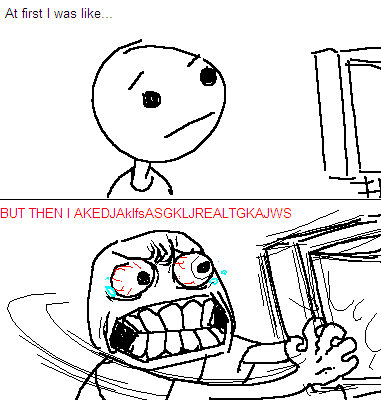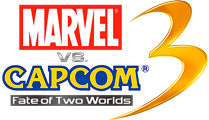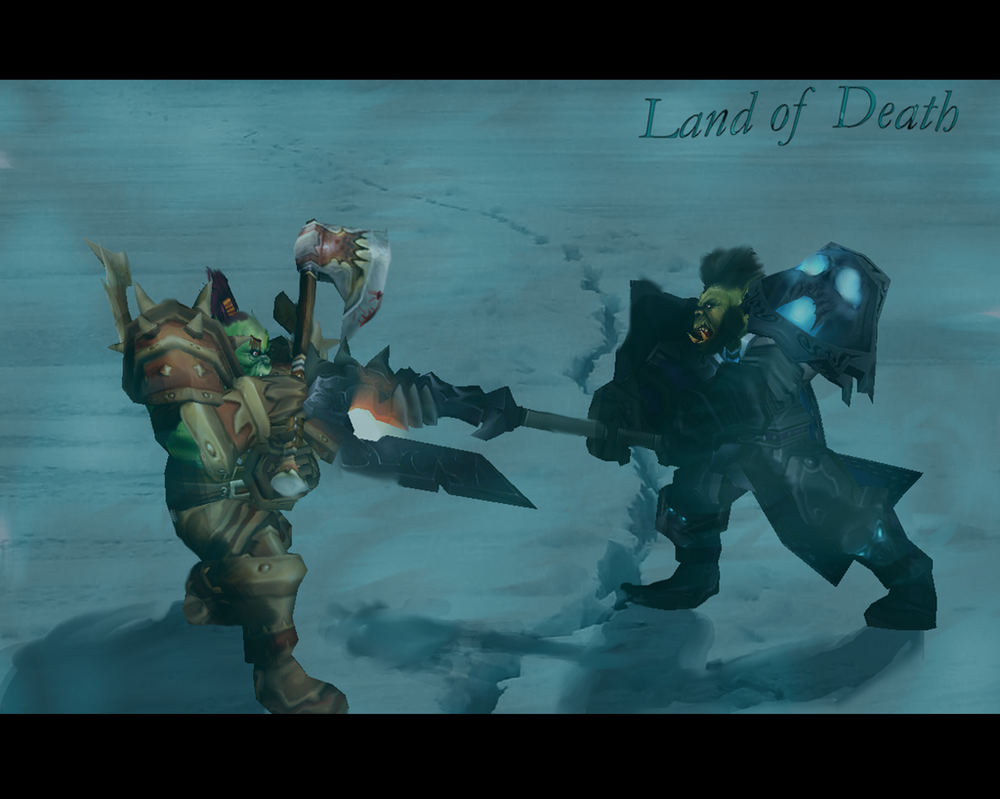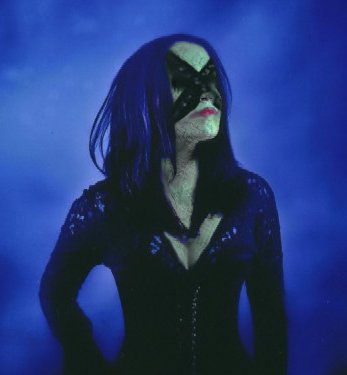So for those who have been wondering where I've been the past few days, I'll tell you in two words and a suffix: Dragon Age II. Well, that and swearing into the Navy (thus the previous blog post). Let's just call this blog post my 'first review' or my 'review of my first playthrough', which I finished sometime around that huge earthquake in Tokyo this morning.
For the record, I am a huge Bioware fan. I have been since I first picked up KOTOR, it was this fandom that got me to pick up the first Dragon Age, as well as Mass Effect, even though they were based on completely original universes and I had no background information on them to grasp and become interested in. It was my fandom that made me pick these up, but it is not what kept me playing (or else I would be giving Jade Empire good praises, which I don't.)
For the record, I have also pre-ordered every Bioware game since KOTOR, with the exception of Jade Empire and the first Mass Effect, but I rectified this by buying Jade Empire for my PC years later, and Mass Effect a few weeks after launch the same day I bought my Xbox 360. Dragon Age II is not an exception to this, nor was Origins. I pre-ordered both on Steam, and got all those lovely little bonus items for doing such, I have also purchased all the DLC for both games that is currently launched. So believe me when I say I know Bioware. This following post is not some suck-up to gain recognition or views. This is an honest, straightforward review. Let's get to it, shall we?
 |
| It's about bloody time. |
|
It is inevitable I will be comparing Dragon Age 2 to Dragon Age: Origns, it's a sequel. Sequels will be compared to the previous installments in the series. Dragon Age: Origins ate about 180 hours of life away during it's first two months after launch, and another 50 or so after some of the more interesting downloadable content (DLC) was launched. I created enough characters to do every choice imaginable, but only completed the game and it's entire DLC library twice. This is because of the massive amount of side quests and things to do. The game felt so open, even though it was a hub world full of countless identical hallways and buildings that I would constantly walk through. It never bored me, I never wondered 'what am I doing?'. Even with it's generic storyline, it was given it's own twists and feel, the Bioware way. I fell in love with the characters, the dialogue, the world, and about everything else. Dragon Age: Origins is probably my favorite Fantasy RPG ever launched, outranking even the fabled Elder Scrolls series.
Needless to say, I came into Dragon Age 2 with high expectations. I had little reason to think they wouldn't be met, either. Bioware delivered an amazing sequel to Mass Effect, and the expansions to DA:O were, while short, still fun and interesting. The only thing that worried me were the rumored changes to the game, how they were 'turning it into Mass Effect because EA is pulling the strings.' And even then, I mostly ignored those warnings, because I believed they were unfounded criticisms of overly zealotrous fanboys who complain about any little change. And really, it's a good thing I did ignore them. I suggest you do the same as well.
 |
| Pictured: Bioware fanboys upon hearing about the dialogue change. |
So what were these changes that people feared? What huge changes came to Dragon Age 2 that made the game so horrible for them (even though it wasn't even announced yet.) First of all we have the change to dialogue. Hawke is completely voiced, and as such his conversation choices have been narrowed down, and he has been given a 'Mass Effect' style indicator to choose his options. The upper one is generally friendly, the middle one smartassed (I'll get back to this), and the lower one hostile.
The misconception was that this would be bringing a renegade/paragon style system to Dragon Age, in truth it didn't. Your conversation choices do not make you look more good/bad appearance wise, and there is no visible meter that tells you how good you are. Instead your choices affect how your friends react to you, and what happens in the world, the exact same way it did in the first Dragon Age. Things have been simplified for the benefit of gaining a skilled voice actor for your main character, something that has been an improvement.
 |
| Hawke? |
Next there were the fabled changes to combat. To be honest, these are the less evident of the changes. Combat feels very similar, just sped up. The only real changes are as follows: 2h weapons are always AoE, everything is a cone, even the auto attacks. Ranged players use their ranged weapons no matter what, in melee range they may gain a different animation. For mages they beat you with their staff, for rogues they beat you with what appears to be a pair of swords.
Other than that combat is unchanged, you still have a pause-play strategy that is required on the higher difficulty levels. You still have different abilities that are aimed either at an enemy, at an area on the ground with a big circle, or in a cone in front of your character. You still have active, cast, and toggle abilities. You even still use the mana/stamina system from DA:O, the only change being that warriors only regenerate stamina after a kill, rogues gain it from auto attacks, and mages still gain a steady rate of mana over time.
The most evident change was the loss of separate origin stories. Every Hawke is the same Hawke, they are all a child (either male or female, mage or not) from the same family in Ferelden. Every Hawke starts off with the same family and background. In the end this choice was probably made for the sake of voice acting, getting a male and female voice actor for all three races would have been expensive, and using the same voices for all three would have felt cheap. Either that or Bioware wanted to focus one flowing story with a set background for your character. I was saddened by this, but the way the game was presented more than made up for it.
In all three of these cases the changes were made for a faster-running game, more simplified. They modernized the game and borrowed elements from Mass Effect, but did them in a very Dragon Age way. These aren't the only changes, but they are the ones people heard of and were scared. All three cases are simply advancement of the game, moving into the future. They are improvements and nothing more. Nothing has been lost other than appearances, oh and origins (that's why this game isn't Dragon Age 2: Origins.).
So let's move on past the rage. This game has improved from it's predecessor in many ways. The visual presentation of the game alone has seen more of an improvement than Mass Effect saw between it's first and second installment. One of my largest issues with the first game had always been about the textures, and this game has improved upon them greatly. I am of course speaking from the perspective of someone who played with the HD textures on the PC version, but if you're not doing that you have no room to complain about graphics.
 |
| Concept art of Kirkwall |
Variety in the world has also had some gains and losses. For about 98% of the game you spend your time around the city of Kirkwall, a former Tevinter stronghold in the Free Marches. This seems like a reduction in variety, but for comparison Dragon Age 2 actually is larger in size than the first game, and that game had five cities, a forest or two, and a bunch of caves to explore. With Dragon Age 2, Bioware has focused one one city and bled it dry, giving us as much of it as we could take.The art palette has been extensively used, this game isn't as brown as it's predecessor, although it sticks to it's realism approach in presentation. The colors also seem better placed than they were in Origins (those who remember the mage tower and the Fade know what I'm talking about)
.
There are a few other minor changes, one of which is to the specialization tree. It has been streamlined and a lot of things from the previous game have been combined into single talents, added on as improvements to other talents, or removed altogether. Many new talents are also present. Your companion characters also each have their own special talent tree unique to them, much like Shale did in Origins. You still gain one point per level to put into the tree, and two specialization points to choose your sub-classes.
 |
| The mage talent trees when pulled back, sub talents are shown when you select a specific specialization. |
Crafting has also changed. No longer do you select an ability from a secondary talent tree (which no longer exists at all) but you find different ingredients throughout Kirkwall. Once you have found an ingredient it is listed, there are different amounts of each ingredient to find and once you have enough to craft something you can simply order it from your home for a small cost that is only limited by your wallet. Recipes are found from picking locks (which is now based on your rogue's level of cunning exclusively, not a talent in the rogue tree), killing creatures, or just laying around.
I've seen some reviews call Dragon Age 2 more of an 'expansion' than a sequel. Honestly this game is more of a sequel than Mass Effect 2 was. They have dropped us in the boots of another character and flown us across the world to a new location, given us a new story and theme, and let us run wild. While the combat has barely changed and a lot of the gameplay remains the same, that is because the first game had it so right the first time. You don't fix what isn't broken, this isn't a revolution it's an improvement. Most of these changes reflect that. Gameplay wise, there really isn't much more for me to say unless you didn't play the original and have no idea where I'm coming from, so let's move to the story, shall we?
Fair warning, the section ahead contains many spoilers. It is also only taken from one playthrough, so it doesn't reflect the entire game. Just like the first installment there are many choices you can make along the way that will change everything. Ready then? Spoilers between the spider pictures.
 |
| Spoiler-Spider is warning you. |
This game starts with a lovely little cinematic that introduces you to one of the supporting characters of the game, Varric. The game is presented as if it is a story he is telling. The game opens up with Hawke and an unnamed companion beating on a few dozen Darkspawn with little trouble and eventually taking down an Ogre, just as the Ogre falls a Dragon swoops in and scorches the land. The story is abruptly stopped by a second character, a seeker of the chantry who claims that the story is bullshit, and that she wants the entire story. Varric agrees to tell it, but he has to tell it from the beginning.
Varric starts over, and begins telling the true origin of Hawke. Hawke and his/her family are introduced fleeing from Lothering, shortly after the Hero of Ferelden (what your character from the first game will hereafter be called) has passed through. Hawke and his family are fleeing the armies of the Darkspawn, and hoping to flee to the north where they can take refuge in the Free Marches, where family is supposedly waiting. Unfortunately their escape route to the north is cut off and they are forced to push south into the wilderness.
While fighting your way through Darkspawn you come cross a Templar and his wife who are also fleeing the Darkspawn, the Templar has been gravely injured and his wife, Aveline, takes up his shield. After a brief confrontation due to your sister's (and possibly your) mage-status, you agree to help each-other flee from your common foe: the Darkspawn.
It is here you find yourself on the same stretch of land that the false Hawke found him/herself on shortly before while Varric was telling the story. Here you are charged by an Ogre who either kills your brother or sister depending on whether you're a mage or not. (Mages lose their kindhearted sister, warriors and rogues lose their asshole brother.) Just as all hope seems to be lost a great dragon swoops in from the sky and burns the Darkspawn horde that are approaching you, the Dragon transforms into human form and reveals herself to be Flemeth.
Flemeth agrees to take you and your companions north to find a ship to Kirkwall, where you have family waiting. But you must first agree to take a small amulet to a place not too far out of the way. Walter, Aveline's husband, at this point begins to writhe in agony, both from his wounds and his contact with Darkspawn blood, something that is poisonous to non Grey Wardens. Walter asks to be put out of his misery, and he is swiftly granted mercy.
 |
| I'mma Dragon, I'mma Dragon |
From here the story cuts to Kirkwall, where your family and Aveline find yourselves trapped outside. Countless refugees from Ferelden have poured into the city over the past four months and the gates have been closed to outsiders. You plea with a guard to contact your uncle Gamlen so you can gain entrance to the city.
Gamlen arrives a few days later, revealing that the entire family fortune has been lost to pay back a few debts, and that he has no way to pay for your entrance into the city, but instead has found two people willing to hire you for work for a year in return for getting you into the city. You have to choose between working for a smuggler, or a ruthless mercenary.
The game cuts out for a year and comes back just as your debt is payed off, this is where your character finally meets Varric, and the game really begins to branch off. Much like Lothering in the first game, this is the point where the game branches off and you are given choices on where to go and what to do. You can gain all your supporting characters rather quickly, and each have their own charms.
I'll get back to these characters in a later post, but suffice to say they are all rather loveable. Varric, Isabella, and Anders (who was in Dragon Age: Origins - Awakening) are perhaps the strongest. You are given the usual romance options, this time you have two homosexual, and three heterosexual options as a male.
Unlike the first game, the Darkspawn only play a minor role. The overall theme of this game is surrounding Hawke and his/her rise to champion in the city of Kirkwall, and finding out why the Chantry seeker is looking for him. In fact you only run into the Darkspawn again during an expedition to the Deep Roads, which you only go to twice. Your main threats come from Qunari, bandits, blood mages, demons, and Templars.
Spoilers end here.
 |
| Spoiler spider is out of power. |
It took me twenty-four hours to beat this game, I did nearly every side-quest available to me and made all my choices the first time through without backtracking and changing them. I encountered every companion character and finished each of their story-arcs, ending the game with as close to 100% completion as I could get.
It really is an improvement on the first game in many ways, I've enjoyed it quite a bit. I have yet to go through and re-beat it as many times as I did the first, but it's only been out for three days; give me time.
I'll be back later for a second look, and a further review of the story, but I can already give my full recommendation to purchase this game. Do not pirate it, do not rent it, BUY it. You need to own this game if you are interested, even just a little. It's Bioware, man, you won't be disappointed.
























